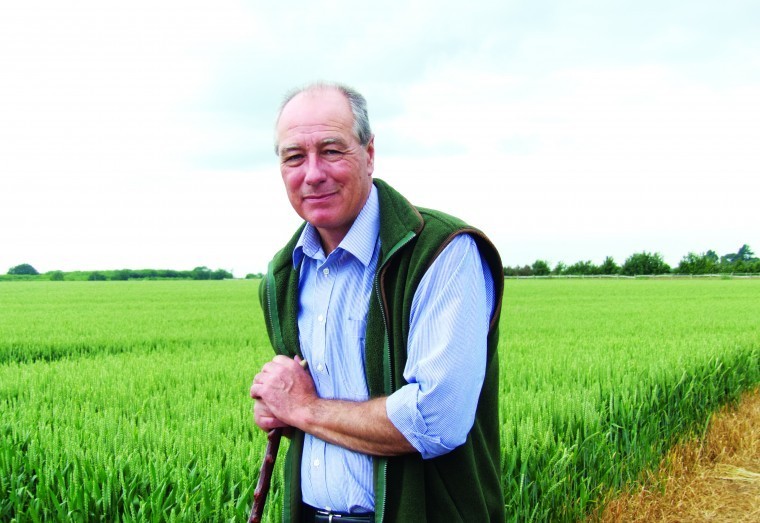In complete contrast we have had some very warm days with temperatures touching 24 centigrade. April rainfall of five millimetres so far has all the hallmarks of a drought after the long wet winter but there is the the prospect of a slightly more unsettled end to the month as I write this.
So where does that leave us in the arable fields? Even after this prolonged dry spell heavy land is still wet underneath although finally most of the springs we have running in fields have at last started to abate. Where we have been forced to move the top soil layer to get a tilth rapid drying has led to moisture loss sufficient to delay emergence.
One lesson relearned is that heavy land over-wintered needs to be left rough so there is something for the elements to work on before we need to move it. That may not quite fit with modern theory on rolling lightly moved soil back down in the autumn to get maximum black-grass emergence but trying to drill into wet clay that resembles a road is a challenge I can live without.
Also as we waited into April to even start moving the heaviest land. As the daylight lengthened and temperatures rose then we had an extensive fourth flush of blackgrass that looked population wise as if it could have been the first germination not the fourth to need spraying off. Having achieved a seed bed with little rain in prospect we held off drilling until seeing a change in the forecast but that still means drilling into little moisture and gambling on when to apply pre emergence residuals.
On an earlier block of spring beans where we held off spraying residuals waiting for rain, we have seen black-grass emerge that was already on the way prior to spraying and has been unchecked by poor residual activity. A rapidly applied additional pass with glyphosphate before the beans fully emerged was the only solution.
So with all the best practice we can muster I remain sceptical we are winning. I would like to say patience is a virtue in terms of waiting to produce the best seed beds we can and getting the best out of the chemical applications but that might have to wait for another month to have any credence.
The other effect of the this variable weather is that early wheats have rapidly moved through growth stages and T0s applied have rapidly been followed growth wise by T1 timings and with little disease pressure the question of timings and gaps, which are short, have raised questions about when and how comprehensive T1 applications should be. With the lack of moisture beginning to be a constraint we may not be building yields in the way we saw last year. However as we all know keeping disease out is better than trying to control it later and the drought conditions are only just beginning to have an effect on the yield potential of winter crops.
Oilseed rape crops have also moved rapidly through stem extension to flowering. The speed has removed any threat from pollen beetle as numbers just did not seem to be capable of building quickly enough to pose a threat. Reports of schlerotinia risk in Kent indicate a slow germination with dry soils and low levels. Without rain treatment timing and strength may be a difficult decision as well. Generally oilseed crops do look well. The potential even with dry conditions seems to be there and experience suggests that dry flowering periods lead to better yields with better pod set and fill and less disease. Early days I know but reasons to be optimistic.
Markets are another matter. Certainly we have seen the pound weaken against the dollar and this has underpinned oilseed prices but at a level where profitability is questionable. Against the euro the pound has remained strong even with the uncertainty of the election simply because the situation with Greece is ensuring the euro is weaker and relatively still weakening.
In an earlier article I mentioned that a solution would inevitably be found for Greece to remain in the euro with Germany again underpinning the solution as it gains so much from the euro zone economically. Yet we see ongoing brinkmanship between the various parties and there is always the risk that eventually there is a misjudgement and Greece leaves the euro zone.
A slightly older friend reminded me that post world war two he remembered the Allies including Greece actually writing off 50% of Germany’s debt burden and only taking debt repayments from export earnings, so laying the foundations for the economic success that is modern Germany. As we were still under rationing at the time he likened it to extending rationing in Britain so Germans could eat. Yet today the treatment and attitude we see from Germany towards Greece could not be more different. No wonder anti German feelings in Greece are so strong.




